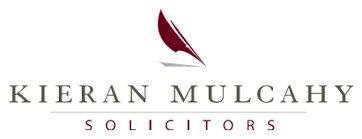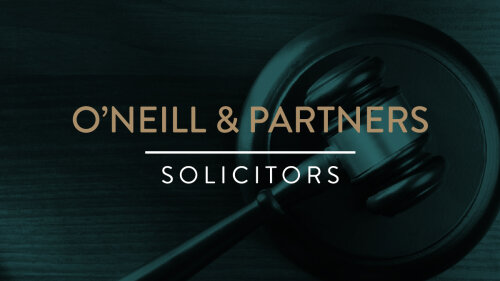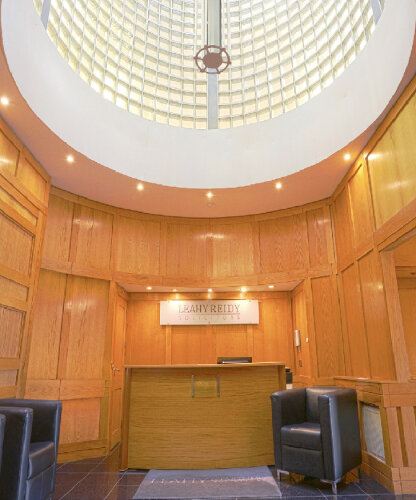Best ADR Mediation & Arbitration Lawyers in Limerick
Share your needs with us, get contacted by law firms.
Free. Takes 2 min.
List of the best lawyers in Limerick, Ireland
About ADR Mediation & Arbitration Law in Limerick, Ireland
Alternative Dispute Resolution, or ADR, is a collective term for processes such as mediation and arbitration that help people resolve disputes without going through the courts. In Limerick, as in the rest of Ireland, ADR has become a popular and effective way to handle disagreements in a cost-efficient, confidential and less adversarial manner. Mediation involves a neutral third party assisting the parties to reach a voluntary agreement, while arbitration is a process where an arbitrator makes a binding decision after hearing evidence from all sides. Both are governed by national legislation and supported by local legal practitioners experienced in these areas.
Why You May Need a Lawyer
While ADR methods such as mediation and arbitration are designed to simplify dispute resolution, the involvement of a lawyer can be invaluable in several situations. You might need legal advice if you are entering into a mediation or arbitration agreement, unsure of your rights or obligations, or if the dispute has complex legal intricacies that could impact the outcome. Lawyers can help you prepare your case, understand the process, represent your interests, and ensure that any agreements or awards are legally sound and enforceable. Common scenarios include business contract disputes, landlord and tenant disagreements, employment conflicts, family law matters, and construction issues.
Local Laws Overview
ADR practices in Limerick are largely regulated by Irish national law, most notably the Mediation Act 2017 and the Arbitration Act 2010. The Mediation Act encourages parties to attempt mediation before resorting to litigation and provides a clear framework for how mediation should be conducted. The Arbitration Act incorporates the UNCITRAL Model Law, giving international recognition to arbitration agreements and awards. Local practitioners in Limerick are familiar with these laws and any County Court Rules that may apply to enforcing or reviewing mediation settlements or arbitral awards. Confidentiality, voluntariness, and impartiality are key principles embodied in the local practice of ADR.
Frequently Asked Questions
What is the difference between mediation and arbitration?
Mediation is a voluntary process where a neutral mediator helps parties reach their own agreement. Arbitration is a more formal process where an arbitrator hears arguments and evidence and then makes a binding decision.
Is mediation confidential?
Yes, mediation in Limerick and throughout Ireland is strictly confidential. Anything discussed or documents shared during the mediation cannot be disclosed in court, except in exceptional circumstances.
Is the outcome of arbitration legally binding?
Yes, an arbitrator's decision, called an award, is legally binding and can be enforced in court if necessary.
When should I consider ADR instead of going to court?
ADR is suitable for most civil and commercial disputes where parties are willing to negotiate or accept a third party's decision. It is often faster, cheaper, and less adversarial than litigation.
Can I have legal representation during ADR?
Yes, you may have a lawyer represent you or provide advice during both mediation and arbitration.
What happens if ADR does not resolve the dispute?
If mediation or arbitration does not result in a settlement or enforceable award, you can still proceed to court litigation in most cases.
Do Irish courts require ADR?
Under the Mediation Act 2017, parties and their lawyers must consider mediation before litigation. Courts can encourage or sometimes require parties to try mediation before hearing a case.
How do I find a mediator or arbitrator in Limerick?
There are professional panels and legal organizations in Limerick that can recommend qualified mediators or arbitrators, including the Law Society of Ireland and the Mediators’ Institute of Ireland.
How much does ADR cost?
Costs depend on the complexity of the dispute and the professional fees of mediators, arbitrators, or lawyers. ADR is generally less expensive than court proceedings.
Are ADR processes suitable for family law disputes?
Yes, family disputes, including separation, divorce, or child arrangements, are commonly resolved using mediation, which offers privacy and flexibility.
Additional Resources
Individuals in Limerick seeking further guidance on ADR can turn to several resources. The Law Society of Ireland provides information and referrals for solicitors experienced in ADR. The Mediators’ Institute of Ireland maintains a register of accredited mediators. Citizens Information Centres in Limerick offer free advice and literature about legal processes, including ADR. For company or industry-related disputes, local Chambers of Commerce may have recommendations or partnership programs supporting ADR. The Courts Service of Ireland also provides publicly available information about ADR processes and enforcement procedures.
Next Steps
If you are dealing with a dispute and wish to explore ADR options in Limerick, start by consulting with a local solicitor who has experience in mediation or arbitration. Gather all documents, contracts, or correspondence related to your dispute and list any questions or concerns you have. Your lawyer can advise you on the best approach, help you understand your rights and obligations, and represent you throughout the process. If cost is a concern, inquire about legal aid or fixed-fee options. Remember that early legal advice can often save time, reduce costs, and increase the chance of a satisfactory outcome through ADR.
Lawzana helps you find the best lawyers and law firms in Limerick through a curated and pre-screened list of qualified legal professionals. Our platform offers rankings and detailed profiles of attorneys and law firms, allowing you to compare based on practice areas, including ADR Mediation & Arbitration , experience, and client feedback.
Each profile includes a description of the firm's areas of practice, client reviews, team members and partners, year of establishment, spoken languages, office locations, contact information, social media presence, and any published articles or resources. Most firms on our platform speak English and are experienced in both local and international legal matters.
Get a quote from top-rated law firms in Limerick, Ireland — quickly, securely, and without unnecessary hassle.
Disclaimer:
The information provided on this page is for general informational purposes only and does not constitute legal advice. While we strive to ensure the accuracy and relevance of the content, legal information may change over time, and interpretations of the law can vary. You should always consult with a qualified legal professional for advice specific to your situation.
We disclaim all liability for actions taken or not taken based on the content of this page. If you believe any information is incorrect or outdated, please contact us, and we will review and update it where appropriate.














